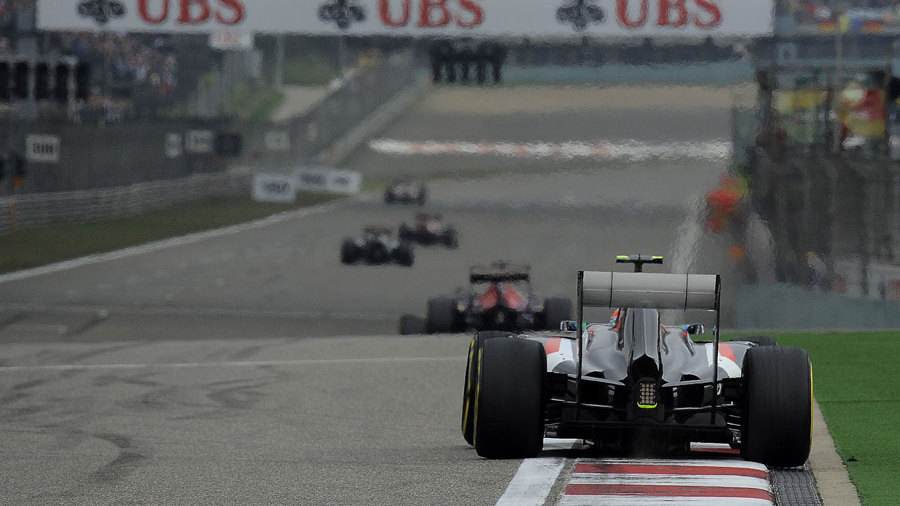- Sauber
F1 in danger of 'ruining' itself - Sauber

Sauber team principal Monisha Kaltenborn has warned that the absence of a budget cap in Formula One could "ruin" the sport, ahead of a crunch meeting between the teams and the FIA on the issue of costs on May 1.
In December last year the FIA announced a global budget cap would be introduced for the start of the 2015 season, but those plans were overturned by the F1 strategy group earlier this year.
The F1 strategy group is made up of Red Bull, Ferrari, Mercedes, McLaren, Williams, Lotus, the commercial rights holder (CRH) and the FIA, with the individual teams holding one vote each and the CRH and governing body both holding six. FIA president Jean Todt revealed earlier this month that he had been outvoted on the principle of a budget cap and the issue of costs would now be addressed through changes in the regulations.
However, Sauber, which is one of five teams without a vote in the F1 strategy group, has warned that reversing the decision on budget caps has the potential to damage the sport.
"We've spoken enough," Kaltenborn said. "The time has long gone where we should have made a decision, but it's never too late. If you just look at the show and the fantastic races we've had, no-one can say this is an outdated product or something we are not keen on. It's still a fantastic platform, but we are just going to ruin ourselves if we don't act here. And people expect us to act.
"What is commonly known, particularly from the FIA side, is that there was a meeting of the teams and following that there was a press release from the FIA that the budget cap had been agreed in principle. Everybody was in agreement with this as well as generally reducing costs. We failed to understand in the process where the budget cap has been rejected, we were never informed officially and know it only through the media.
"We all agreed in principle to the way we wanted to go ahead. There are two ways, it's not singularly looking at the budget cap and that's it, we fully agreed that you also have to look at the rules, and try to make changes there. We went through a lot of things there that we pretty much agreed on and we can make a lot of changes there [in terms of the rules]. It's not 'this or that' and we agreed on this combination, but what is not understandable to us is why suddenly this rejection [of the budget cap]."
Kaltenborn believes it is crucial a budget cap is reinstated at the May 1 meeting, not just for the health of the smaller teams, but also the credibility of the FIA.
"I have the hope that with this meeting coming up on May 1 that we will come to some conclusion and that it's not going to be just one of the meetings we've had before without a significant step. Time is running and we have soon the middle of the year when we need to make a decision because we need to have this in place at the beginning of next year. It's important for the credibility of the key players in the sport, because there were public announcements made that we want to have this in place for next year."
Kaltenborn believes finding a way forward is also crucial for the big teams in the sport and that they have a responsibility to keep F1 financially healthy.
"All the teams here that don't face the challenges we smaller teams face should stand up for the sport. I can't imagine that teams which are healthy would expect to have the same sort of revenue and same kind of exposure should they follow other concepts such as having four teams or just A and B teams. I don't think that would really work. In sport, and in any areas of business, through the rules or the laws, you want diversity, healthy competition, you want sustainable businesses and you want the businesses to run in a responsible way. So why should it be any different here?
"The so-called smaller teams have signalled that we can go to a higher figure [to start the budget cap at]. It's not just us just cribbing about something and saying you have to come down, we fully understand that downsizing is more difficult than if you just bloat up a structure. We are not expecting miracles, we just want a line drawn there, even if we don't reach it [the top of the budget cap], it's not about us - it's about the whole sport. And then you find a path to glide down until you come to a good figure that in time everyone can manage to work with."